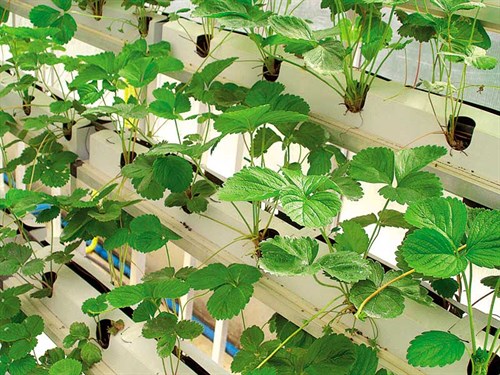Agri-business ideally suited for IoT growth
The internet of things (IoT) provides New Zealand with an enormous opportunity to support the economic growth of the agri sector
A fresh research study has identified agri-business as one of the best opportunities to use the internet of things (IoT) for economic advantage in New Zealand, mainly because of the contribution that agriculture already makes to the Kiwi economy.

The research study was commissioned by the New Zealand IoT Alliance – an independent member funded group of tech firms, major corporates, start-ups, universities, and government agencies.
Alliance chair and NZTech chief executive Graeme Muller says agriculture is an important part of the New Zealand economy producing 40% of the country’s merchandise exports so agricultural productivity is critical for the economic wellbeing of all New Zealanders.
There are at least 600,000 people living in rural New Zealand, effectively making up our second largest city. Agriculture and tourism are the powerhouses of the Kiwi economy.
Every year, more than two and a half million tourists visit rural New Zealand. In 2011–2012, $53 billion, or 25% percent of GDP, was generated directly or indirectly by the agri-food sector, from rural New Zealand.
While New Zealand’s agricultural productivity growth is still ahead of the world average of 1.7% percent a year, it has remained relatively low at 2.5% between 2008 and 2015.
Increasing use of IoT technology is needed to lift productivity. Additionally, with increasing environmental and sustainability pressures, New Zealand’s farmers are looking to technology to make their operations more compliant, Graeme says.

"Given the scale of the estimated productivity gains across the agri-sector through better use of IoT, farmers, farm suppliers, the tech industry, and the government should resolve to accelerate its uptake.
"While farmers are starting to use technology, including IoT, to increase productivity and reduce costs in the face of increased competition and compliance requirements, the uptake of IoT in agriculture is relatively low across the sector as a whole.
"There is no dispute that using IoT systems to augment the intuition of the farmer will have a huge impact in terms of improving productivity on the farm and improving its environmental and sustainability performance. There is the ability to grow more while using less in a way that the community will find more acceptable.
"For fruit and wine growers, frost conditions can decimate acres of fruit blossom in a single cold night. To mitigate the risk of loss, IoT solutions can predict and manage frost conditions.
"Farmers and growers are value purchasers. Cost is less of an issue if the value is obvious. For example, a farmer might struggle to see the value in a $20 a month phone upgrade but will have no qualms buying a $130,000 tractor.
"Farmers seek decision support for farming and automation for compliance. As technology makes its way onto the fields in the future, more farm management will be done from a desk or device instead of in the field.
"New Zealand pack houses, such as A.S. Wilcox and Sons, are involved in the entire supply chain of fresh vegetables, including growing, picking, processing, packing, and transporting. Technology has become an integral part of their success.
"The Wilcox pack house uses technology to integrate operations from the field to the customer and to ensure the best product is put in the best place. Instead of people, they can send drones to check crops for quality and growth. Sensors on machinery report how much harvesters are gathering.

"The IoT Alliance has recently established a core working group, including network service providers, technology providers, farming groups, and government to accelerate pilot studies of IoT on arable farms. Earlier this year, Graeme travelled with Prime Minister Bill English to Japan on a trade delegation with a focus on food and agri-tech.
"New Zealand is building a reputation of technological innovation around sectors we are already known for. Agri-firms such as Fonterra, ANZCO, and Zespri are leveraging their innovations in New Zealand to open up new opportunities in markets such as Japan.
"Embracing IoT technology may be a big cultural shift for some in the farming community yet the potential benefits are enormous, with an estimated $448 million in net benefit to New Zealand over the next 10 years from better use of IoT for water management on dairy farms alone," Muller says.
There’s an enormous opportunity for New Zealand to use technology as a means to support the economic growth of our agri sector and to also work with the sector to become a world leader in a fast-growing agritech market, he says.
New Zealand’s agri-tech industry will come under the spotlight at the International Tri Conference for Precision Agriculture from October 16 to 18. The event is being run by the Precision Agriculture Association of New Zealand, which is an alliance partner with NZTech.
Keep up to date in the industry by signing up to Farm Trader's free newsletter or liking us on Facebook




.jpeg)
.jpg)
.jpg)
.jpeg)

.jpg)
.jpeg)




